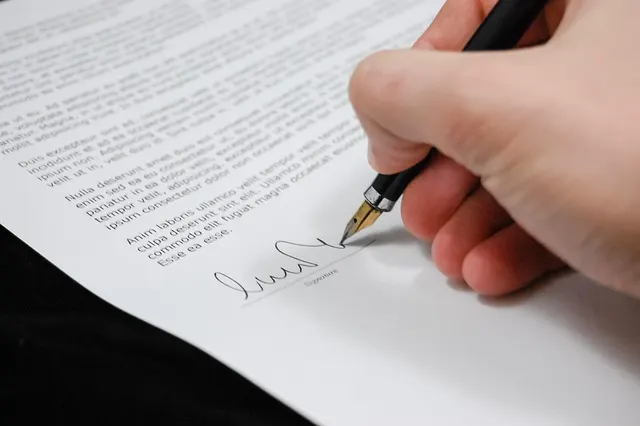Thinking about expanding your business through franchising or buying into a well-known retail brand in the UAE?
A franchise agreement is the foundation of that relationship, and getting it right is critical. Whether you’re the franchisor or franchisee, this legal document defines how the franchise operates, who controls what, and what happens if something goes wrong.
This article will help you understand what a franchise agreement should include, how to approach drafting one in the UAE, and when to involve franchise agreement lawyers or legal professionals.
What Is a Franchise Agreement in UAE?
A franchise agreement is a legally binding contract between a franchisor (the business owner) and a franchisee (the investor or operator). It sets out the terms under which the franchisee can use the franchisor’s brand name, products, systems, and support to run their own outlet.
In the UAE, franchising is governed by general contract law under the UAE Commercial Transactions Law, but each agreement can be tailored to reflect the needs of both parties.
Whether you’re reviewing a franchise agreement sample or preparing your own, the agreement must be comprehensive, clear, and compliant with UAE regulations.
Key Elements of a Franchise Agreement
When it comes to hiring lawyers for your business, you must ensure legal protection and operational clarity. Make sure your lawyer includes the following elements in the franchise agreement.
1. Details of the Parties
The agreement must clearly identify the franchisor and franchisee by full legal names, company registrations, and business addresses. It should also define the legal relationship between them, particularly in cases involving foreign franchisors and local sponsors or agents.
2. Franchise Scope and Grant of Rights
This section defines the geographical area where the franchisee is allowed to operate, what type of business they’re running (e.g., a retail shop, food outlet), and whether they have exclusive rights in a region.
Without clear territorial clauses, future disputes over competition or overlapping locations can arise.
3. Duration and Renewal Terms
The franchise agreement template should specify how long the agreement will last, typically 5 to 10 years, and what the process is for renewal. This section also outlines the grounds for early termination by either party.
4. Fees and Payments
A well-drafted franchise agreement includes all payment obligations, including initial franchise fees, ongoing royalties, marketing contributions, and any other operational charges. Payment schedules and methods should be clearly detailed to avoid future misunderstandings.
5. Training and Support
The franchisor is usually expected to provide initial training, operational guidance, and ongoing support. These responsibilities must be spelled out, including timelines and the scope of training for the franchisee and their staff.
Before operations begin, the franchisor typically offers initial training to the franchisee and key staff. This training may cover store operations, customer service protocols, product handling, branding, software systems, and local compliance requirements.
The franchise agreement should outline the location, duration, and cost (if any) of this training program.
6. Brand Usage and Intellectual Property
This section outlines how the franchisee may use the franchisor’s trademarks, logos, designs, and business methods. Any unauthorized use of intellectual property is a breach of contract and must be addressed with specific legal consequences in the franchise agreement.
7. Operational Standards and Compliance
Retail franchisors generally want a consistent customer experience. Therefore, the agreement should define the operational standards, store layout, product sourcing, pricing strategies, and quality controls that the franchisee must follow.
8. Marketing and Advertising
Marketing obligations are often shared between the franchisor and the franchisee. The agreement should explain who funds advertising campaigns, what approval is needed, and how local promotions are handled. This helps protect the brand and ensure consistency across all outlets.
9. Dispute Resolution and Termination
Every franchise agreement template should include a dispute resolution clause, usually through arbitration or local courts in the UAE.
The agreement must also define what counts as a breach of contract and what actions will lead to termination, including notice periods and exit procedures.
10. Confidentiality and Non-Compete Clauses
To protect sensitive business information, franchise agreements often include confidentiality and non-compete terms. These prevent the franchisee from sharing trade secrets or starting a similar business during or after the agreement period.
Sample Franchise Agreement: Why It’s Not Enough

While a franchise agreement sample can help you understand the general format, relying on a generic document is risky. Templates rarely address specific UAE laws or business nuances such as Emirati ownership requirements, licensing, or import/export restrictions in certain sectors.
Instead of downloading a one-size-fits-all franchise agreement template, it’s always better to consult with qualified franchise agreement solicitors who understand the legal environment in the UAE.
A tailor-made agreement protects your business from legal disputes and ensures compliance with local law.
How Franchise Agreement Lawyers in the UAE Can Help
Franchise agreements are not just simple business contracts; they involve brand rights, operational control, financial obligations, and long-term commitments. One small oversight in the terms can lead to costly disputes or unexpected liabilities.
That’s why working with experienced franchise agreement lawyers is not just recommended, it’s essential.
Whether you are entering your first franchise deal or expanding into new markets, legal guidance ensures that every detail is aligned with UAE law and your business goals.
Here’s how qualified franchise agreement solicitors or litigation lawyers in Dubai can support you:
1. Ensuring Legal Compliance with UAE Franchise Agreement Law
UAE has its own commercial and civil codes, as well as specific business licensing regulations that apply to franchise operations.
A franchise agreement lawyer understands the legal environment and ensures your contract is fully compliant with UAE laws, including those covering agency relationships, foreign ownership, and intellectual property rights.
2. Identifying and Reducing Legal Risks
Franchise agreements often contain hidden risks, unclear renewal clauses, unfair termination terms, or restrictive non-compete conditions.
Legal professionals identify potential red flags early and guide you in modifying or negotiating clauses that may expose you to unnecessary financial or legal obligations.
3. Drafting Enforceable and Balanced Clauses
A generic or poorly written franchise agreement template may not hold up in UAE courts. Experienced franchise agreement lawyers can draft clear, enforceable terms that protect your brand, define responsibilities, and reduce the chance of future misunderstandings.
These include terms on territory, royalties, training, intellectual property, and exit strategies.
4. Assisting in Negotiations and Dispute Resolution
Franchise negotiations often involve significant back-and-forth. Having a lawyer on your side strengthens your negotiating position.
If disputes arise during the term of the agreement, such as conflicts over performance, payments, or branding, your legal team can mediate or represent you in arbitration or litigation, depending on what the agreement allows.
5. Protecting You in Early Termination or Breach
Many franchise relationships don’t last the full contract term. If either party chooses to exit early or breaches the agreement, the financial and reputational consequences can be serious.
A well-drafted franchise agreement outlines exit procedures, penalties, and protections. Your lawyer will ensure you are not left vulnerable if things don’t go as planned.
By involving franchise agreement solicitors early, before you sign or invest, you’re protecting your business, your capital, and your future operations.
In a fast-growing and highly regulated market like the UAE, this professional support could be the difference between a profitable franchise and a legal setback.
Conclusion
You should involve a legal expert as early as possible, ideally before you sign any documents or letters of intent. Many businesses wait until problems arise, but preventive legal advice can save you from future disputes and financial loss.
If you’re considering entering a franchise arrangement in the UAE, At Ayesha Aljaziri Lawyers & Legal Consultants, we are well-equipped to guide you through the entire process.
For expert assistance, contact us at +971 5594 83605 or email info@aljaziriadvocates.com for a confidential consultation.








